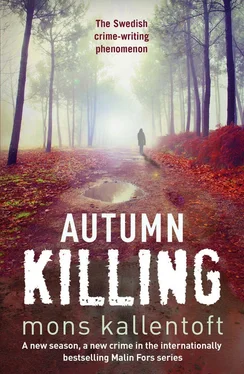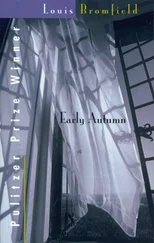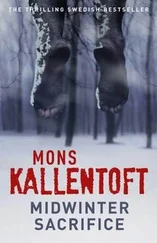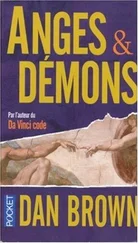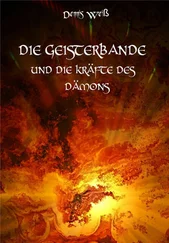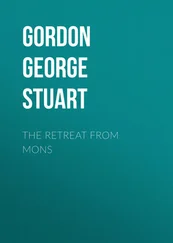Mons Kallentoft - Autumn Killing
Здесь есть возможность читать онлайн «Mons Kallentoft - Autumn Killing» весь текст электронной книги совершенно бесплатно (целиком полную версию без сокращений). В некоторых случаях можно слушать аудио, скачать через торрент в формате fb2 и присутствует краткое содержание. Жанр: Триллер, на русском языке. Описание произведения, (предисловие) а так же отзывы посетителей доступны на портале библиотеки ЛибКат.
- Название:Autumn Killing
- Автор:
- Жанр:
- Год:неизвестен
- ISBN:нет данных
- Рейтинг книги:3 / 5. Голосов: 1
-
Избранное:Добавить в избранное
- Отзывы:
-
Ваша оценка:
- 60
- 1
- 2
- 3
- 4
- 5
Autumn Killing: краткое содержание, описание и аннотация
Предлагаем к чтению аннотацию, описание, краткое содержание или предисловие (зависит от того, что написал сам автор книги «Autumn Killing»). Если вы не нашли необходимую информацию о книге — напишите в комментариях, мы постараемся отыскать её.
Autumn Killing — читать онлайн бесплатно полную книгу (весь текст) целиком
Ниже представлен текст книги, разбитый по страницам. Система сохранения места последней прочитанной страницы, позволяет с удобством читать онлайн бесплатно книгу «Autumn Killing», без необходимости каждый раз заново искать на чём Вы остановились. Поставьте закладку, и сможете в любой момент перейти на страницу, на которой закончили чтение.
Интервал:
Закладка:
‘Tenerife,’ she said.
‘But that’s where Grandma and Grandad live! I want to come too!’
‘You can’t, Tove. I’ve got to work. And you’ve got school.’
Eighteen months ago Tove would have insisted, maybe shouting down the phone, but now she just kept quiet.
‘Did you help Dad move my things?’ Malin asked.
‘No. He didn’t want me to.’
Then, after another silence: ‘So you’ll be seeing Grandma and Grandad?’
‘I don’t know. Well, we’ve agreed that I might go and see them tomorrow.’
‘You’ve got to see them, Mum.’
‘I’ll say hello from you.’
‘Give Grandad a hug and tell him I miss him. Give Grandma a hug as well.’
Then she calls Janne’s mobile, hoping to get the messaging service, and she does, and leaves a message about going away. He hasn’t called back, so she assumes he doesn’t care.
Malin goes back out into the room, takes all her clothes off, thinking that even if the air conditioning sounds way too loud, at least it works. Then she gets in the shower and turns it on, genuinely surprised at the strength of the water pressure, and lets the water run down her face and body.
She didn’t drink anything on the plane.
And it’s lucky there’s no minibar in the room.
Then Tove comes into her mind again, and Malin wonders why she hadn’t just turned up at the flat or at the station, why she hadn’t insisted on meeting, or even suggested meeting, and she feels the muscles around her ribcage contract as she realises that Tove feels the same ambivalence as she does. You’ve worked out that keeping your distance makes you feel better, haven’t you, Tove?
She pretends to hug Tove. The hot water of the shower is Tove’s warm body.
I’m your mum, and I love you.
The police station is more than a kilometre away, but Malin decides to walk, wearing a thin white dress and a pair of white canvas shoes.
She walks past big hacienda-style villas behind tall, white-plastered walls, newly built terraces, and run-down blocks of flats with washing drying in the windows. She passes hotel complexes where huge pools sparkle behind thin hedges of tropical plants she doesn’t know the names of. A thousand pubs and bars and restaurants screaming out their offerings: ‘Full English breakfast’, ‘Swedish meatballs’, ‘Pizza’, ‘German specialities’.
She wants to look away.
She hopes that Los Cristianos, where her parents live, is a bit more up-market, with a few more redeeming features than the tourist ghetto of las Americas.
The police station is in a cube-like three-storey building on a small square lined with pavement cafes. The sea, shimmering blue in the afternoon light, is visible at the end of a street leading off the square.
Where is everyone? Malin thinks. On the beach?
She pushes open the stiff door of the police station and steps in.
No chairs on the speckled floor of the entrance hall, just a noticeboard on one wall with posters showing the faces of terrorists.
Behind bullet-proof glass sits a young uniformed officer. He’s smoking, gives her a dismissive glance, as if he gets her sort in here all the time.
He must think I’m just another stupid tourist, Malin thinks. Probably thinks I’ve been mugged by Russians. Unless he thinks I’m a prostitute? Could he think that?
Malin goes up to the glass, holds up her police ID.
The policeman raises his eyebrows in an exaggerated, Latin gesture.
‘Aah, Miss Fors, from Sweden. We’ve been expecting you. Let me call for Mr Gomez who will assist you. He’ll be right out.’
33
Waldemar Ekenberg slams the car door shut and Johan Jakobsson rushes after him through the rain, in under the porch of the red-brick block of flats in the district of Gottfridsberg. The area was built in the forties, small flats with a lot of rooms, perfect homes for all the families who moved to the city to work for Saab, NAF and LM Ericsson.
Will this rain never end? Johan thinks, then for a few seconds the rain turns to snow inside him, to scentless chill, and he reflects upon the fact that we’re only at the start of the darkness, November, December, January, February, March, dark months that rip the souls from people’s bodies, kids kicking up a fuss on the hall floor, refusing to put their overalls and boots on, protesting against the itchy hats pushed down on their heads.
This morning had been really shitty.
The kids both had furious tantrums, God knows what got into them, and his wife was still cross because he hadn’t gone to Nassjo with them.
It was a relief to come to work.
A huge damn relief.
And now he watches as Waldemar taps the code into the keypad beside the door, pushes it open angrily as if he’s annoyed at this whole wretched autumn, and then they’re standing together in a stairwell that smells of damp, looking around, as if there were something there apart from peeling grey-green paint, a list of names, and a staircase made of speckled stone.
‘Fucking hell,’ Waldemar says, and Johan can’t tell if his colleague means the stairwell or the weather, but he guesses that Waldemar means the weather and says: ‘Yes, and we’re only at the start of it.’
Jonas Karlsson.
Third floor.
‘Right at the top,’ Waldemar says, and Johan thinks that his swollen, closed eye tells you all you need to know about how brutal Waldemar can be.
Thirty seconds later they are standing in front of a grey-brown door listening to a doorbell ring inside, then footsteps as someone slowly approaches the front door.
Jonas Karlsson. He was at the wheel in that car accident they found in the archive. Jerry in the car, on the Fagelsjos’ land, as it was then. A young man named Andreas Ekstrom died, and a girl named Jasmin Sandsten was handicapped for life.
Nice to get away from the paperwork, Waldemar thinks.
Sven Sjoman this morning: ‘Dig about in that accident. See if it stirred things up, it’s happened before.’
People’s pasts, Johan thinks. Shackled to them, walled up inside their memories.
Jonas Karlsson.
What happened on that New Year’s Eve almost thirty years ago was by all accounts an accident, but how much must you have regretted it since that night? Do you feel responsible for a young man’s death, a young woman left severely handicapped? And, if so, what has your life been like since then?
The door opens.
A man with thinning hair and a bulging gut under a wine-red lambswool sweater looks at them wearily, doesn’t say hello, just gestures them in with his right hand.
Puffy cheeks, but a sharp nose, and Johan thinks that thirty kilos and twenty years ago Jonas Karlsson was probably pretty good-looking. A faint smell of alcohol on his breath.
‘Take your shoes off. You can sit down on the sofa,’ and Jonas Karlsson seems to enjoy giving them orders, there’s a force in his voice that’s lacking in his bearing.
‘I need a piss, then I’ll be with you,’ and Karlsson disappears into the toilet as Waldemar and Johan sit down on the white sofa in the living room, feeling the blue and white striped wallpaper closing in on them.
Neat and tidy. But not much furniture, and a big flat-screen television.
A typical bachelor pad, Johan thinks, and if their files are accurate, Jonas Karlsson ought to be forty-three years old, but he looks considerably older, tired and worn out. In one corner sits a drinks cabinet, its door ajar, an ashtray with a few cigarette butts on the table, but no pervasive smell of smoke.
‘Do you think he drinks?’ Johan asks.
Before Waldemar can answer they hear Karlsson’s voice: ‘I drink far too much when I’m on a binge. But I hold it together.’ Then he sits down in front of them on an armchair by the window looking out onto the inner courtyard, the black and apparently dead branches of some birch trees swaying crazily in the wind and the intermittent rain. There’s a bookshelf full of DVDs, VHS tapes and boxes of Super 8 films with illegible handwritten labels.
Читать дальшеИнтервал:
Закладка:
Похожие книги на «Autumn Killing»
Представляем Вашему вниманию похожие книги на «Autumn Killing» списком для выбора. Мы отобрали схожую по названию и смыслу литературу в надежде предоставить читателям больше вариантов отыскать новые, интересные, ещё непрочитанные произведения.
Обсуждение, отзывы о книге «Autumn Killing» и просто собственные мнения читателей. Оставьте ваши комментарии, напишите, что Вы думаете о произведении, его смысле или главных героях. Укажите что конкретно понравилось, а что нет, и почему Вы так считаете.
